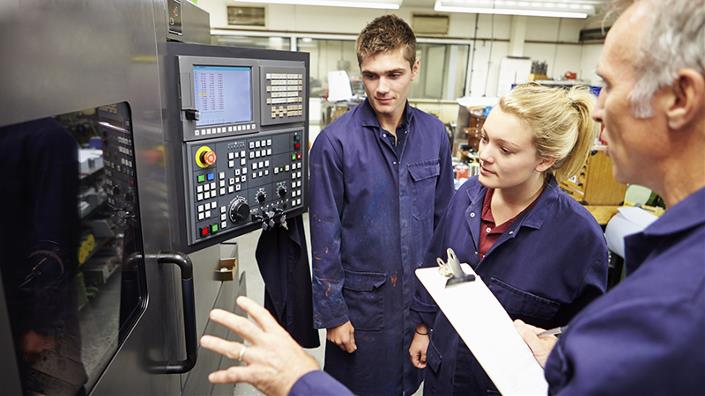IMPROVING SOCIAL MOBILITY COULD ADDRESS UK’S ENGINEERING SKILLS SHORTAGE

A new report from EngineeringUK suggests that more should be done to support students from disadvantaged backgrounds to study and succeed in STEM subjects (science, technology, engineering and maths) subjects.
Analysis shows that just under a quarter of those working in engineering come from low socio-economic backgrounds, with this underrepresentation consistent with participation and achievement throughout the engineering educational pipeline.
- 44% of pupils eligible for free school meals (FSM) achieved an A*-C grade GCSE in mathematics compared with 71% of non-FSM pupils; the respective figures for physics are 8% compared with 23%.*
- Similar gaps were observed at A level: of those who sat an A level Mathematics exam in 2017, 54% of those eligible for FSM in school achieved an A*-B grade, compared with 66% of those who were not eligible. The corresponding figures for physics are 39% and 52%.
- Just 1 in 10 engineering and technology first year undergraduates** came from the most disadvantaged POLAR4 quintile***.
The UK faces an engineering skills shortage, with 203,000 roles requiring engineering skills needed to be filled annually through to 2024. The report suggests the skills gap could be addressed if the educational system and engineering community worked together to address social mobility.
The report, “Social Mobility in Engineering” which provides an overview of social mobility in engineering from the educational pipeline to the workforce, indicates engineering has the potential to offer real career opportunities for young people, whatever their background.
However, an unequal provision of science-related subjects across the country is a barrier, with deprived areas more likely to face teacher shortages and have STEM subjects taught by non-specialists, and the lack of availability of triple science at GCSE. This potentially affects young people’s opportunity to study subjects like A level Physics, which can have a knock-on effect for undergraduate degrees and routes into engineering careers.
The report identifies patchy careers guidance as an obstacle to social mobility, with students from deprived areas needing more access to high-quality careers guidance.
EngineeringUK CEO Mark Titterington, said:
“Addressing issues of diversity and inclusion is crucial for the engineering community – we need to encourage all young people, whatever their background, that engineering is for them.
“Not only is there a compelling business case for the sector to harness and widen the talent pool to address the skills shortage so people from all backgrounds are able to contribute positively to some of society’s biggest challenges, it’s just as important for young people to discover how fulfilling, diverse and exciting careers in modern engineering can be. From powering our lives to improving our health and wellbeing, engineers shape the world we live in.”
Social mobility in engineering builds on the data and analysis contained within the Engineering UK 2018: The state of engineering report and provides an overview of social mobility in the sector.
It considers the potential implications of recent policy reforms, presents trends in STEM educational attainment and participation among those from disadvantaged backgrounds, and reflects on how these factors impact their employment outcomes.
* Data taken from academic year 2015 to 2016.
** Data taken from the academic year 2016 to 2017.
*** POLAR – Participation rates of young people in Higher Education
About Social mobility in engineering: Published November 2018, it is an EngineeringUK briefing that forms part of a wider research programme. It provides an overview of social mobility in engineering, both in terms of the educational pipeline and the workforce. It considers the potential implications of recent policy reforms, presents trends in STEM educational attainment and participation among those from disadvantaged backgrounds, and reflects on how these impact on their employment outcomes. It also examines the barriers to participation in engineering and highlights various strategies being implemented to overcome them.
About EngineeringUK: A not-for-profit organisation, which works in partnership with the engineering community to promote the vital role of engineers and engineering and to inspire the next generation. EngineeringUK leads engagement programmes The Big Bang and Tomorrow’s Engineers, produces the annual State of Engineering report and is a strategic partner in the This is Engineering digital campaign to encourage young people to follow what they love into engineering.











Responses